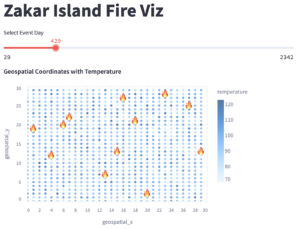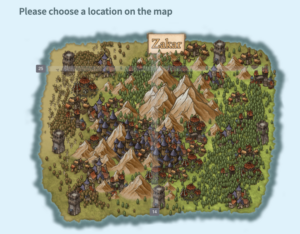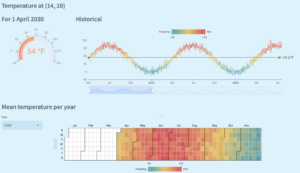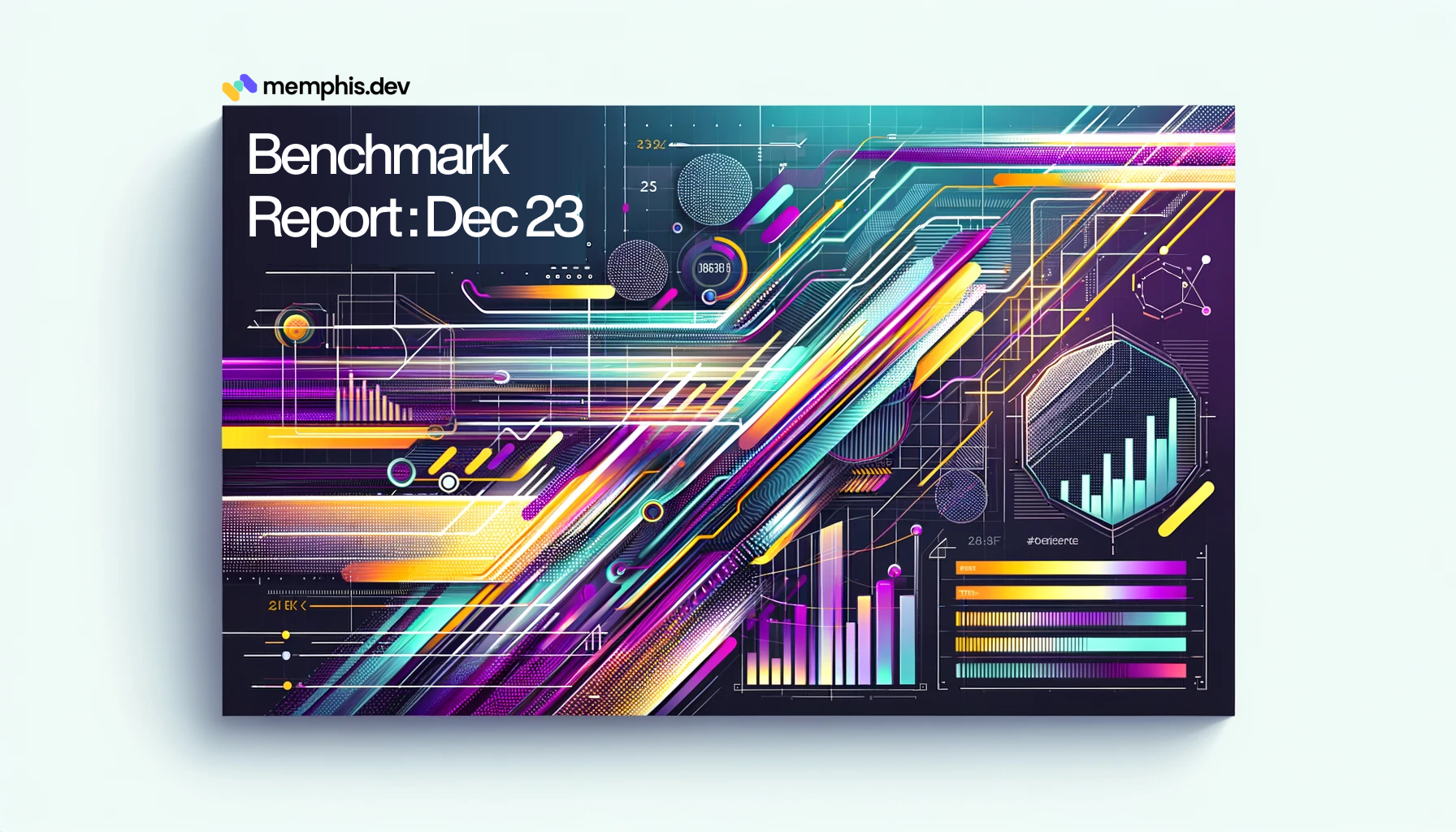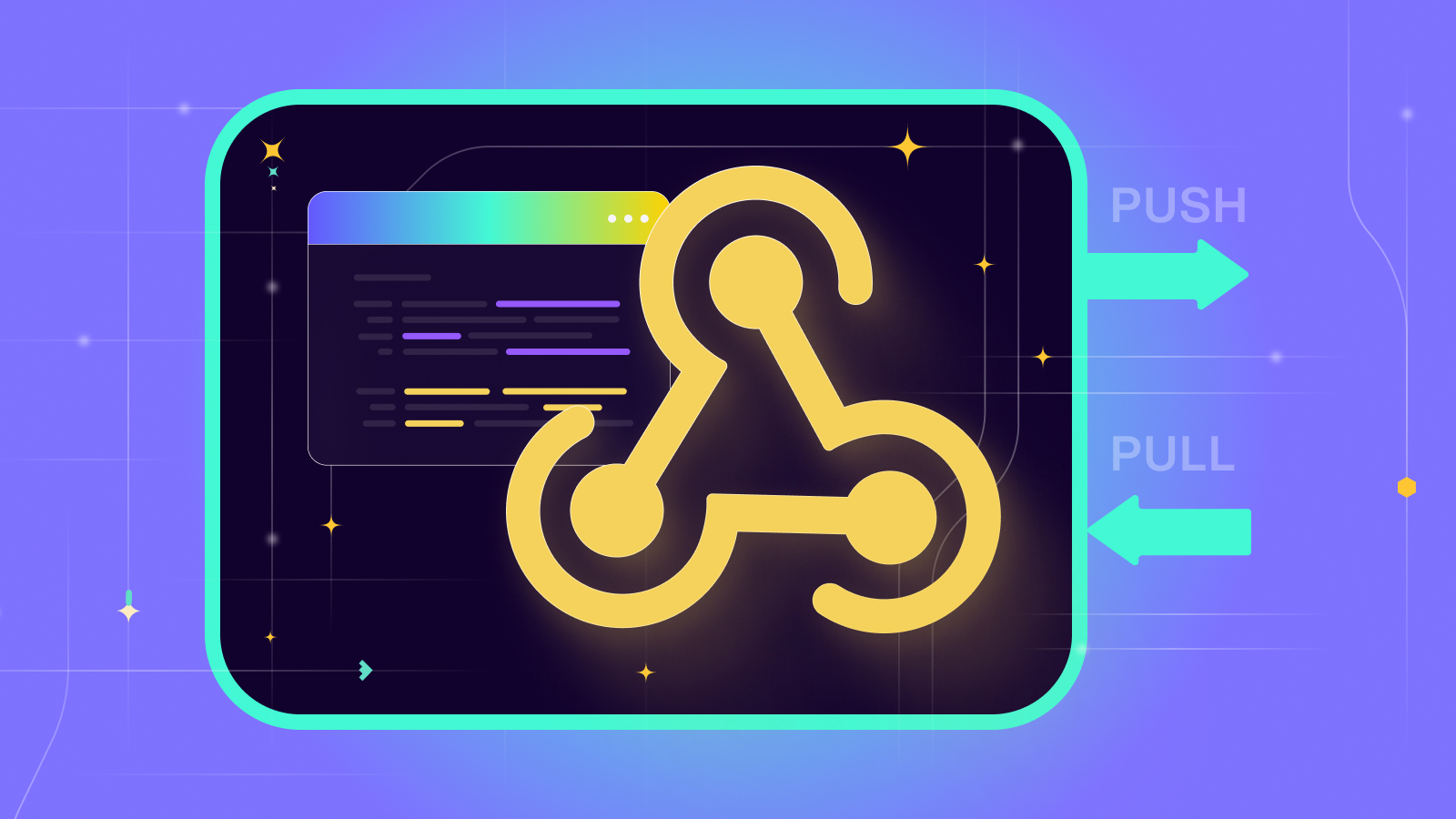Fighting Wildfires Using Real-Time Data and ML: Save Zakar Hackathon
 Contents
Contents
In a world marked by ever-increasing climate challenges, the significance of addressing wildfires has taken on a new urgency. While planning the #SaveZakar hackathon, we could not predict the recent wave of devastating fire events across the world. Thousands of injured people and substantial ecological damage vividly underscored the need for proactive measures that can mitigate the destruction and safeguard our planet.
What We Were Trying to Achieve:
It’s difficult to predict where and when wildfires will occur. In this hackathon, the participants were challenged to create a wildfire early-warning system that uses temperature readings and social media messages to detect wildfires before they spread and generate early-warning alerts for the fictional island nation of Zakar which has been struggling with wildfires for the last few years.
The mission was clear: Within a mere week, the participants were tasked with either crafting a machine learning-powered early warning system or constructing a real-time dashboard that could visually represent the temperature and tweet data in a user-friendly manner using Streamlit and Supabase. Temperature readings and social media posts were delivered using Memphis.dev. Each project was judged by the following categories:
- Visual Aesthetics
- Visual Informativeness
- Early Warning Code / Docs Quality
- Algorithm Accuracy
The highest-ranking project won the title of best project and a perfect gaming package. All other data heroes won cool Streamlit and Memphis.dev swag.
Here are the top winners:
In the 1st place – The Zakar Fire Data by Javel Rowe – GitHub issue
When comparing the submitted dashboards, Javel Rowe’s submission truly stood out. Javel created a grid that displayed the temperature measured by each sensor and a fire icon when a fire event notification was received. The user can scan through the data over time using a slider. All of the dashboards were aesthetically pleasing, but only Javel’s dashboard was genuinely useful for viewing past fire events by location and date. From Javel’s dashboard, it’s easy for the user to get a sense of what areas of the island are particularly at risk for fires and the times of year in which the fire risks are at their highest. It’s often easier to add features than to remove them. It was clear to the judges that Javel put significant thought into the dashboard as a product and its users.
In the 2nd place – The A-squared by Kristian André Jakobsen & Alessandra Oshiro – GitHub issue
The judges were particularly impressed by the aesthetic quality of the A-squared dashboard. The core of the dashboard is an illustration of the island. When users click on a region of the island, details such as the temperature over time for that region are displayed. The judges were impressed with the aesthetic quality of the dashboard. The main limitation of this design is that it doesn’t provide a holistic view of the island. Given that wildfires tend to spread to nearby locations and some types of terrain (e.g., sandy, forested, etc.) are at higher risk of fires than others, the holistic view is important for identifying areas at risk for wildfires.
Runner-Up
We wanted to mention a runner-up project that stood out.
The BlazeWatch System by Alan Alwakeel, Ty Chermsirivatana, and Tricked – GitHub issue.
The BlazeWatch system is composed of three components: the Carbon frontend, the Blaze machine learning model, and the Oxygen backend. The judges were impressed by the architecture, packaging of the code, modeling, and documentation. The main limitation of the Blaze Watch system is that the dashboard wasn’t particularly useful for users interested in predicting wildfires.
Summing up, we would like to say a big thank you to the above 100 developers who participated in the #SaveZakar Hackathon. Your efforts have been remarkable, demonstrating the true power of data-driven innovation. In a world where climate change remains an urgent concern, your dedication to raising awareness and pioneering solutions is a beacon of hope. Let’s keep aiming for a better future, one where our planet thrives.
